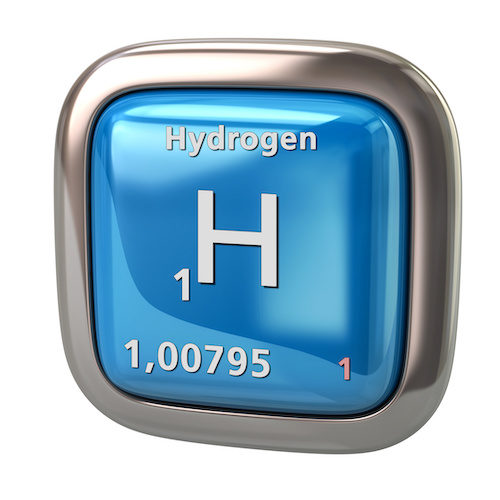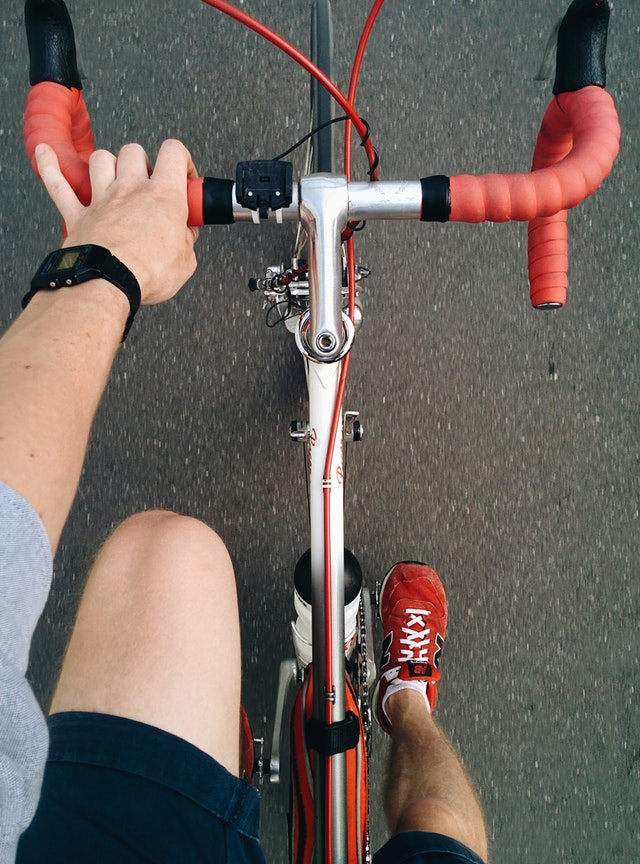In addition to its potential application for conditions ranging from treatment-resistant psoriasis to Parkinson’s disease, [1,2] the ability of this small molecule with substantial antioxidant and anti-inflammatory potential to easily traverse cellular membranes and biological barriers make it potentially applicable as a therapy not only for nearly every human disease condition but also as a performance enhancing tool. [3] Studies suggest hydrogen (H2) may offer benefits in the realm of sports medicine by improving ventilatory capacity and cardiovascular performance,[4,5] enhancing mitochondrial energy production and biogenesis,[6,7] reducing the exercise-induced rise in lactic acid,[8] increasing endurance and strength,[9,10] and supporting repair and recovery from injury or overtraining,[11] much of which has been seen clinically in randomized, double-blind, placebo controlled trials (RDBPCTs).
Cardiovascular Function, Endurance and Molecular Hydrogen

Multiple studies have shown H2 improves exercise-related cardiovascular parameters. In the first of these RDBPCTs, healthy but overweight middle-aged women were provided with 1 L of H2-rich water (HRW), providing 9 ppm of H2, to consume daily for a period of 28 days, with an incremental exercise test being performed prior to and at the end of the intervention. [4] At the end of the study period, those receiving the HRW had significantly greater VO2 max, time to exhaustion, and total work completed compared to placebo.
The second RDBPCT showing positive impacts on cardiovascular performance looked at acute supplementation of H2 – participants only consumed the H2 producing tablets (or placebo) the night before and 30 minutes prior to a graded treadmill exercise test to exhaustion.[5] In this study, the population was health young adults and included a crossover portion with a minimum four-day washout period. Although the maximal heart and respiration rates and VO2 max were not significantly different, compared to placebo, the average exercising heart rate and respiratory rate were significantly lower after H2 was consumed.

Additional research also suggests that H2 supplementation may improve endurance. In one such study, trained male cyclists were provided with 2 L of HRW or placebo to drink daily for two weeks. A cycling trial, consisting of 10 three-minute segments at varied intensities, was performed at baseline and completion.[12] In those receiving the HRW, absolute peak power output (PPO) remained unchanged through the trial while those drinking placebo water had significantly decreased PPO in the last three sprints of the trial. Other parameters were not significantly altered. In an additional larger two-part study with separate populations of non-trained and trained individuals, HRW was consumed acutely, either 10 or 30 minutes prior to moderately intense exercise on a cycle ergometer.[9] In both parts of this study, there were significant improvements in fatigue scores compared to placebo after consumption of HRW.
Some of these effects may be due to a reduction in lactic acid levels with H2 consumption. By improving mitochondrial function, a decline in lactate may occur, as muscle cells are better able to meet energy demands via mitochondrial ATP production, rather than switching to glycolytic anaerobic metabolism, which leads to the production of lactic acid.[6,13] In the realm of exercise physiology, with H2 consumption, a decrease in the typical rise in lactic acid levels subsequent to exercise has been shown in multiple human studies.[8,14] A reduction of the lactate:pyruvate ratio in individuals with mitochondrial myopathies after 12 weeks of supplementation with HRW further supports this theory.[15] HRW consumption also may have the effect of increasing the blood pH and bicarbonate levels.[16]
Exercise and Injury Recovery and Molecular Hydrogen
The production of reactive species is part of the body’s inherent response to physical training and plays an important role in the performance gains we see with regular exercise training.[17] However, when oxidative species exceed the hormetic zone (region in which they induce positive effects) they contribute to muscle damage, fatigue, and soreness.[18.19] There is not a standard, accepted approach to determining at what level positive effects are exceeded, and debate exists on when and how much antioxidant support is beneficial for athletic training.[20] That said, many studies have shown that antioxidant intake helps improve recovery and decreases delayed onset muscle soreness (DOMS).[21-24]
As an antioxidant, H2 is unique in the fact that it primarily reacts with the highly reactive and toxic hydroxyl (•OH) and peroxynitrite (ONOO-) radicals, with less of an effect on weaker oxidants like nitric oxide (NO) and hydrogen peroxide (H2O2), which are important for a normal immune response and cellular signaling.[25,26] Although H2 does not neutralize NO and H2O2, it has been shown to reduce excessive production.[27,28] H2 also has been shown to decrease levels of numerous pro-inflammatory cytokines, including tumor necrosis factor alpha (TNF-α),[29,30] which plays a role in DOMS and pain as well.[31] Indeed, in animals subject to exercise challenge, inhalation of air containing 2% H2 during exercise significantly blunted the exercise-induced rise in TNF-α, interleukin-6, and thiobarbituric acid reactive species (a marker of lipid peroxidation) and potentiated the increase in superoxide dismutase,[32] suggesting it may help balance the post-exercise inflammatory and oxidative stress response.
Human studies have looked at oral intake or topical treatment with HRW as techniques for reducing DOMS and improving recovery from injury. In one of these studies, healthy young men participated in a downhill running exercise (8% decline, exercising at 75% of VO2 max for 30 minutes) after which they were assigned to a placebo or HRW bath for 20 minutes daily for six days.[33] Although the H2 bath had no effect on markers of oxidative stress or inflammation, those assigned to the HRW bath had significantly reduced DOMS as assessed by visual analog scale on days 1 and 2 after downhill running. In the second of these studies, male professional athletes with acute soft tissue injuries were treated with one of three alternatives for two weeks: traditional treatment for soft tissue injury, traditional treatment + oral intake of H2-producing tablets, or traditional treatment + H2-producing tablets orally + topical treatment with a H2 water saturated pack multiple times daily.[11]Both groups receiving H2 had significantly greater improvements in range of motion of the affected joint than the control (traditional treatment) group, while H2 also was observed to significantly enhance the post-injury decrease in plasma viscosity, a marker of inflammation.[34]
Although the findings from these studies are somewhat limited, they do point to benefits H2 may have in the field of athletic performance. Given that they represent research primarily conducted in the past five years, with the promising outcomes, we should anticipate further research in years to come.
Dr. Carrie Decker, ND graduated with honors from the National College of Natural Medicine (now the National University of Natural Medicine) in Portland, Oregon. Dr. Decker sees patients remotely, with a focus on gastrointestinal disease, mood imbalances, eating disorders, autoimmune disease, and chronic fatigue. Prior to becoming a naturopathic physician, Dr. Decker was an engineer, and obtained graduate degrees in biomedical and mechanical engineering from the University of Wisconsin-Madison and University of Illinois at Urbana-Champaign respectively. Dr. Decker continues to enjoy academic research and writing and uses these skills to support integrative medicine education as a writer and contributor to various resources. Dr. Decker supports Allergy Research Group as a member of their education and product development team.
- Zhu Q, et al. Positive effects of hydrogen-water bathing in patients of psoriasis and parapsoriasis en plaques. Sci Rep. 2018 May 23;8(1):8051.
- Yoritaka A, et al. Pilot study of H₂ therapy in Parkinson’s disease: a randomized double-blind placebo-controlled trial. Mov Disord. 2013 Jun;28(6):836-9.
- Ostojic SM. Molecular hydrogen in sports medicine: new therapeutic perspectives. Int J Sports Med. 2015 Apr;36(4):273-9.
- Ostojic S, et al. 28-days hydrogen-rich water supplementation affects exercise capacity in mid-age overweight women. ASCM Poster Presentation. 2018 Jun 15;7.
- LeBaron TW, et al. Acute Supplementation with Molecular Hydrogen Benefits Submaximal Exercise Indices. Randomized, Double-Blinded, Placebo-Controlled Crossover Pilot Study. J Lifestyle Med. 2019 Jan;9(1):36-43.
- LeBaron TW, et al. Hydrogen gas: from clinical medicine to an emerging ergogenic molecule for sports athletes. Can J Physiol Pharmacol. 2019 Sep;97(9):797-807.
- Wang L, et al. Hydrogen-rich water inhibits mitochondrial oxidative stress and inflammation in the skeletal muscle after eccentric exercise. Chinese J Tissue Eng Res. 2015 Jan 1(29):4682-7.
- Aoki K, et al. Pilot study: Effects of drinking hydrogen-rich water on muscle fatigue caused by acute exercise in elite athletes. Med Gas Res. 2012 Jul 12;2:12.
- Mikami T, et al. Drinking hydrogen water enhances endurance and relieves psychometric fatigue: a randomized, double-blind, placebo-controlled study. Can J Physiol Pharmacol. 2019 Sep;97(9):857-862.
- Korovljev D, et al. Hydrogen inhalation positively affects cardiometabolic risk factors in men and women aged 65 years or older: a preliminary report. European Geriatric Medicine. 2018 Oct 1;9(5):729-30.
- Ostojic SM, et al. Effectiveness of oral and topical hydrogen for sports-related soft tissue injuries. Postgrad Med. 2014 Sep;126(5):187-95.
- Da Ponte A, et al. Effects of hydrogen rich water on prolonged intermittent exercise. J Sports Med Phys Fitness. 2018 May;58(5):612-621.
- Phypers B, Pierce JT. Lactate physiology in health and disease. Cont Ed Anaesthesia, Crit Care & Pain. 2006 Jun 1;6(3):128-32.
- Drid P, et al. Is molecular hydrogen beneficial to enhance post-exercise recovery in female athletes? Science & Sports. 2016 Sep 1;31(4):207-13.
- Ito M, et al. Open-label trial and randomized, double-blind, placebo-controlled, crossover trial of hydrogen-enriched water for mitochondrial and inflammatory myopathies. Med Gas Res. 2011 Oct 3;1(1):24.
- Ostojic SM, Stojanovic MD. Hydrogen-rich water affected blood alkalinity in physically active men. Res Sports Med. 2014;22(1):49-60.
- Gomez-Cabrera MC, et al. Redox modulation of mitochondriogenesis in exercise. Does antioxidant supplementation blunt the benefits of exercise training? Free Radic Biol Med. 2015 Sep;86:37-46.
- Radak Z, et al. Exercise, oxidative stress and hormesis. Ageing Res Rev. 2008 Jan;7(1):34-42.
- Peake J, et al. Characterization of inflammatory responses to eccentric exercise in humans. Exerc Immunol Rev. 2005;11:64-85.
- Kawamura T, Muraoka I. Exercise-Induced Oxidative Stress and the Effects of Antioxidant Intake from a Physiological Viewpoint. Antioxidants (Basel). 2018 Sep 5;7(9).
- Thompson D, et al. Prolonged vitamin C supplementation and recovery from demanding exercise. Int J Sport Nutr Exerc Metab. 2001 Dec;11(4):466-81.
- Ranchordas MK, et al. Antioxidants for preventing and reducing muscle soreness after exercise. Cochrane Database Syst Rev. 2017 Dec 14;12:CD009789.
- Bryer SC, Goldfarb AH. Effect of high dose vitamin C supplementation on muscle soreness, damage, function, and oxidative stress to eccentric exercise. Int J Sport Nutr Exerc Metab. 2006 Jun;16(3):270-80.
- Chou CC, et al. Short-Term High-Dose Vitamin C and E Supplementation Attenuates Muscle Damage and Inflammatory Responses to Repeated Taekwondo Competitions: A Randomized Placebo-Controlled Trial. Int J Med Sci. 2018 Jul 30;15(11):1217-1226.
- Ohsawa I, et al. Hydrogen acts as a therapeutic antioxidant by selectively reducing cytotoxic oxygen radicals. Nat Med. 2007 Jun;13(6):688-94.
- Matei N, et al. Emerging mechanisms and novel applications of hydrogen gas therapy. Med Gas Res. 2018 Sep 25;8(3):98-102.
- Sakai T, et al. Hydrogen Indirectly Suppresses Increases in Hydrogen Peroxide in Cytoplasmic Hydroxyl Radical-Induced Cells and Suppresses Cellular Senescence. Int J Mol Sci. 2019 Jan 21;20(2).
- Tamaki N, et al. Hydrogen-Rich Water Intake Accelerates Oral Palatal Wound Healing via Activation of the Nrf2/Antioxidant Defense Pathways in a Rat Model. Oxid Med Cell Longev. 2016;2016:5679040.
- Zheng X, et al. Hydrogen-rich saline protects against intestinal ischemia/reperfusion injury in rats. Free Radic Res. 2009 May;43(5):478-84.
- Liu Q, et al. Hydrogen-rich saline protects against liver injury in rats with obstructive jaundice. Liver Int. 2010 Aug;30(7):958-68.
- Borghi SM, et al. Role of TNF-α/TNFR1 in intense acute swimming-induced delayed onset muscle soreness in mice. Physiol Behav. 2014 Apr 10;128:277-87.
- Nogueira JE, et al. Molecular hydrogen reduces acute exercise-induced inflammatory and oxidative stress status. Free Radic Biol Med. 2018 Dec;129:186-193.
- Kawamura T, et al. Effects of hydrogen bathing on exercise-induced oxidative stress and delayed-onset muscle soreness. Jpn J Phys Fit Sport Med. 2016;65:297–305.
- Késmárky G, et al. Plasma viscosity: a forgotten variable. Clin Hemorheol Microcirc. 2008;39(1-4):243-6.




